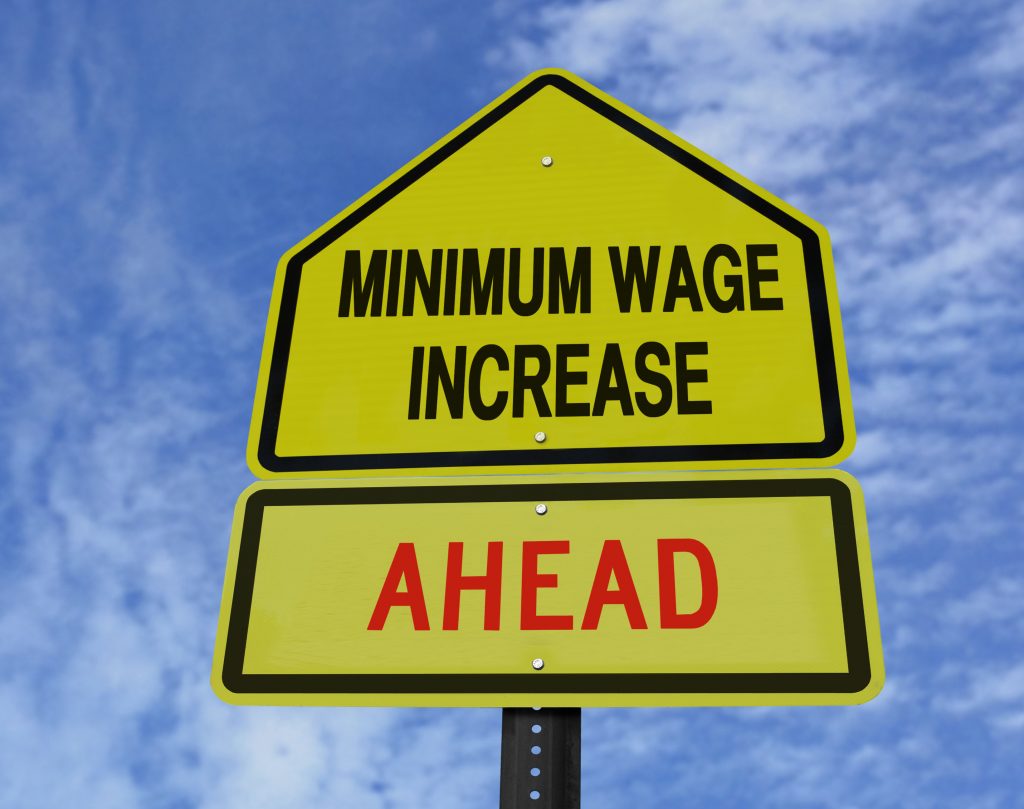As predicted, Missouri voters turned out in record numbers for the 2018 general election this month and overwhelmingly voted to pass Proposition B: The $12 Minimum Wage Initiative.
As a result, beginning Jan. 1, 2019, the hourly minimum wage in Missouri will increase from $7.85 to $8.60, and will gradually increase by 85 cents per year until it reaches $12 per hour in 2023:
- 2020 – $9.45/hour
- 2021 – $10.30/hour
- 2022 – $11.15/hour
- 2023 – $12.00/hour
The initiative comes on the heels of Missouri voters rejecting Missouri’s “right-to-work” proposition in the 2018 August primary.
Although the federal minimum wage remains at $7.25 per hour, private employers with workers in Missouri must comply with the new law beginning Jan. 1. Employers who fail to comply with the new law will be penalized and will be required to pay an underpaid employee not only the full amount of wages owed, but also an additional amount equal to twice the unpaid wages.
Brief History Of Missouri’s Minimum Wage
Prop B offered Missourians the first opportunity since 2006 to vote on the state minimum wage. It landed on the ballot after progressive groups such as Raise Up Missouri collected more than 120,000 signatures in favor of the wage hike. However, the minimum wage has been the subject of much debate within the Missouri legislature for the last several years.
In 2015, voters in Kansas City and St. Louis passed ordinances which increased the minimum wage to $10 in St. Louis and in Kansas City, with a gradual increase to $15 per hour by 2022.
The ordinances, however, were short-lived after the 2017 state legislature passed House Bill 1194, barring municipalities from raising the minimum wage higher than Missouri’s rate. The minimum wage in both cities reverted back to $7.70 per hour—the Missouri state minimum wage at that time.
In 2018, the state minimum wage increased 15 cents per hour to the current rate of $7.85 per hour. Prop B does not affect HB 1194, and Missouri cities are still prohibited from increasing their local minimum wage above the Missouri rate.
According to the Missouri Ethics Commission, proponents of Prop B (including Raise Up Missouri, Sixteen Thirty Fund and the Black Progressive Action Coalition) spent nearly $6 million on the measure. They advocated for an increase that they believed would help not only workers earn a “living wage” but would also boost the economy and Missouri businesses.
Opponents of the initiative claimed that a minimum wage increase usurps the federal government’s right to set wages and would hurt small businesses and Missouri’s job market.
What Should Employers Do?
While there is a possibility that the Missouri General Assembly could alter or even overturn Prop B, Missouri employers should prepare for the wage increase starting Jan. 1.
Preparations should include informing all managers of the wage hike as well as adjusting payroll systems and pay practices to comply with the new law.


